In the rosy glow of Hollywood’s roaring twenties, one starlet shone the brightest — Clara Bow. Known affectionately as the “It” Girl, Clara Bow’s effervescent presence in movies defined an era and created an archetype for silver screen sirens. Bow wasn’t just an actress; she was a phenomenon, a symbol of the flapper era, embodying the zest and liberated spirit of the time.
Bow’s career was a whirlwind of success that began in the early 1920s. With her vivacious energy and magnetic appeal, she quickly rose from bit parts to become a cinematic treasure. What made Clara stand out was her uninhibited style of acting, which was new to audiences accustomed to more restrained performances. She was a natural in front of the camera, exuding a presence that was both captivating and relatable.
She could communicate a breadth of emotion with the twitch of a lip or a subtle glance, making her an ideal fit for the silent film era. Her ability to express herself so vividly without words was paramount in a time when on-screen dialogue was conveyed through title cards. Bow became the quintessential flapper on screen, her characters often spirited, lovable, and brimming with a joie de vivre that resonated with the young women of her time.
Her films were diverse, ranging from romances and comedies to hard-hitting dramas, and she handled each genre with a distinct flair. Clara’s acting chops shone brightly whether she was the demure damsel, the determined heroine, or the daring flapper. It was this versatility that kept her at the zenith of her career throughout the 1920s.
Bow’s contribution to cinema also transcended her on-screen roles. She was instrumental in transitioning movies from the silent era to the talkies. While many silent stars struggled to adapt their voices to the new medium, Clara’s Brooklyn-accented speech and candid personality were embraced by the audience, further solidifying her star status.
Even after the cameras stopped rolling, her legacy continued to inspire generations of actors and filmmakers. Below is a list of some of the most famous movies in which Clara Bow stunned the audience.
#1 It (1927)
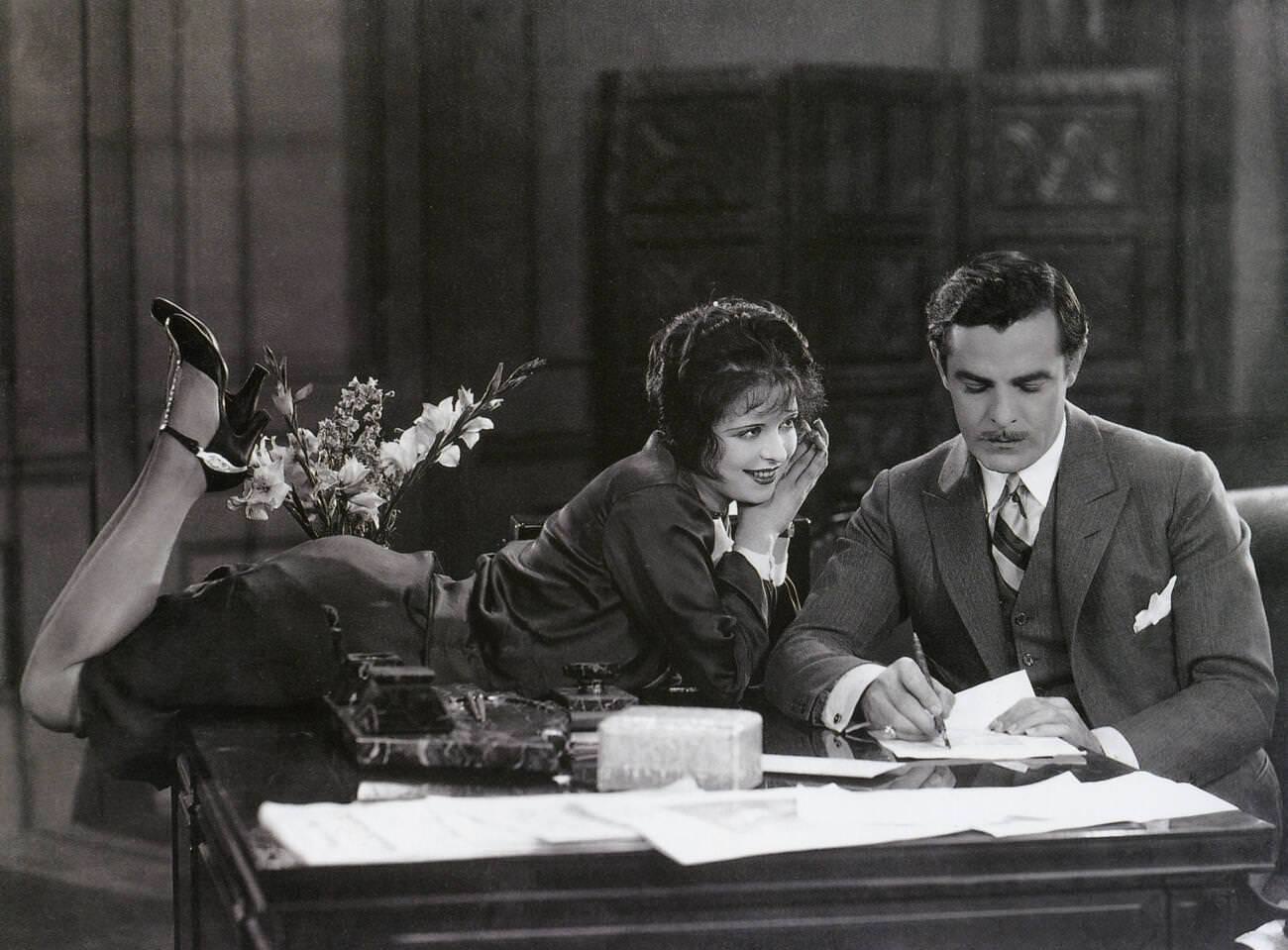
It is a silent romantic comedy film that epitomizes the vivacious charm and allure of the flapper era, showcasing Clara Bow's talent as the effervescent shop girl, Betty Lou Spence. In the movie, Bow's character embodies the concept of the "It" girl, a young woman who possesses the magnetic appeal and self-assuredness to attract others with her spirited zest for life. Betty Lou is infatuated with her wealthy employer, Cyrus Waltham, played by Antonio Moreno. Determined to win his affection, she exhibits a mix of whimsy, assertiveness, and sensuality that was the hallmark of Bow's onscreen persona.
Clara Bow's performance is both dynamic and endearing, marking a significant moment in her career where she not only demonstrates her acting ability but also shapes the flapper archetype. She artfully balances the comedic elements with a heartfelt vulnerability, showcasing a range of emotions that captivate the audience. Bow's effervescence on screen ensures that Betty Lou is not merely a caricature of a flapper but a fully realized character whose liveliness and charm are undeniable.
#2 Wings (1927)
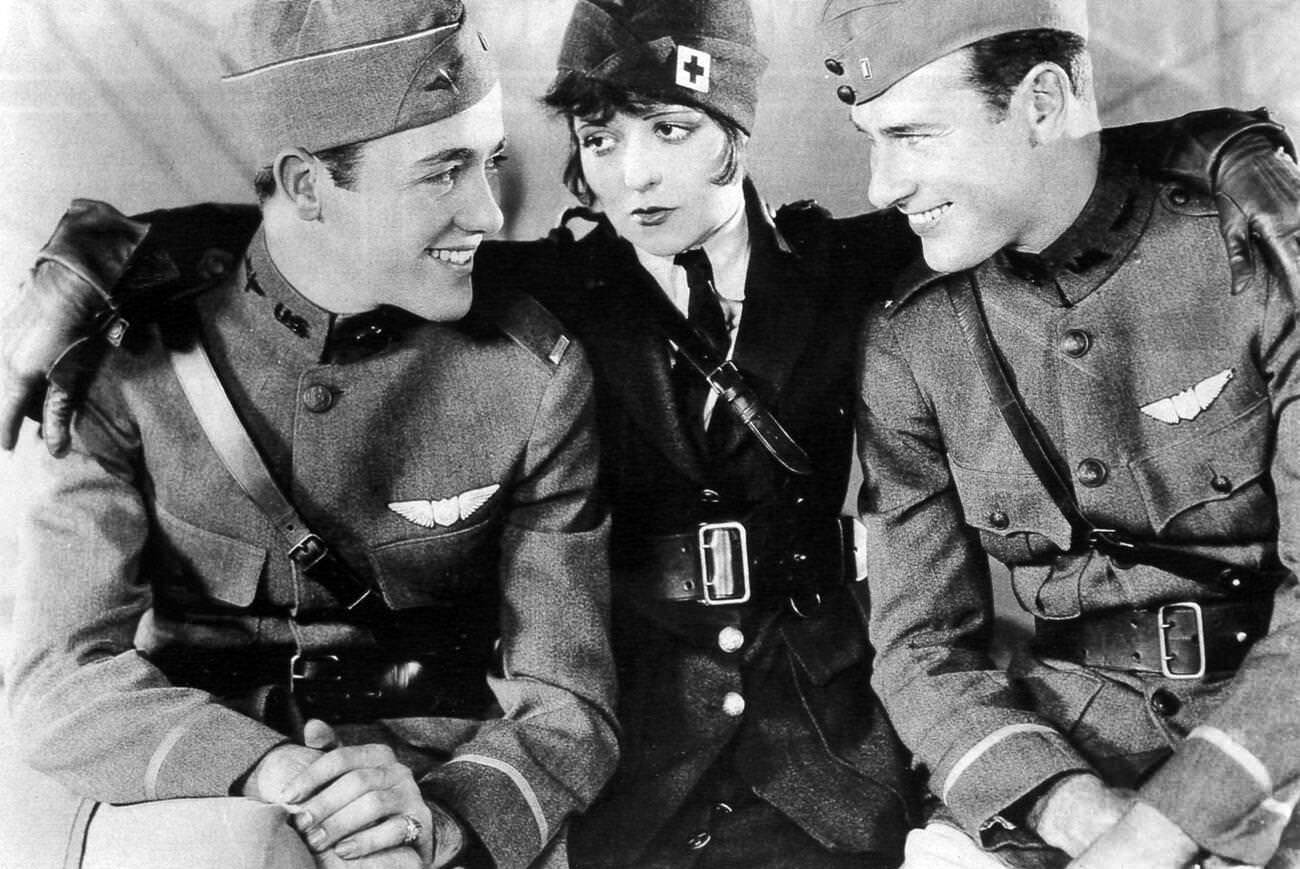
It is a silent war drama, is celebrated for its stunning aerial combat sequences and moving narrative, set against the backdrop of World War I. Clara Bow features as Mary Preston, a lovable and audacious motor corps ambulance driver, harboring an unrequited love for her neighbor, Jack Powell, played by Charles "Buddy" Rogers. While the film centers on the bond and rivalry between two combat pilots, Jack and David Armstrong (Richard Arlen), Bow's role is crucial to the film's emotional depth.
Clara Bow's performance in "Wings" radiates with her characteristic vivacity and resilience, bringing a layer of warmth and humanity to the war-torn drama. Her acting captures Mary's independent spirit and tender heart, as she effortlessly transitions from the girl-next-door to a courageous woman in a chaotic world. In the midst of groundbreaking aerial cinematography and male camaraderie, Bow's portrayal offers a poignant glimpse into the experiences and contributions of women during the war.
#3 Mantrap (1926)
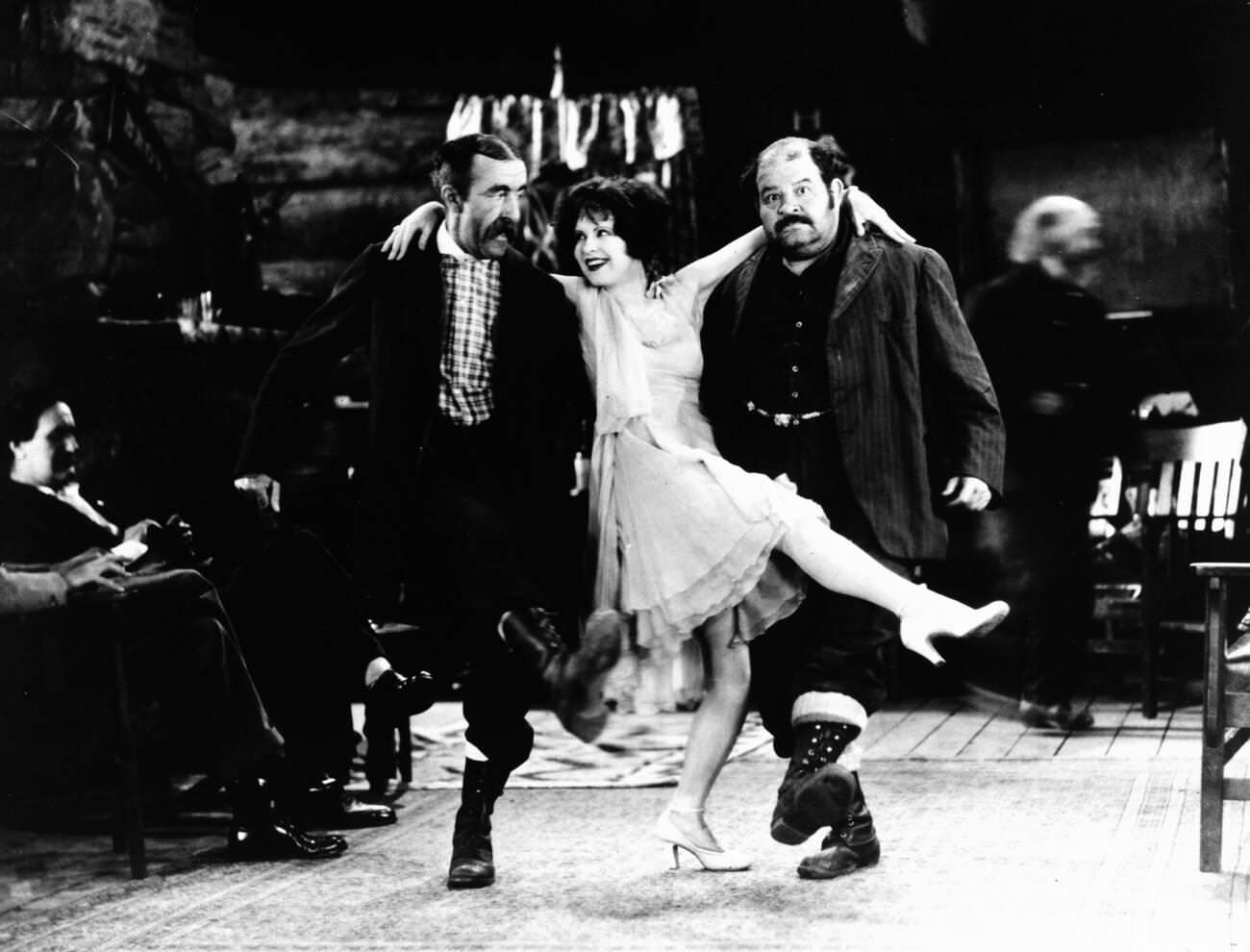
It is a silent film comedy that features Clara Bow in one of her quintessential flapper roles, encapsulating the free-spiritedness and charm that made her a 1920s icon. In this film, Bow plays Alverna, a vivacious manicurist with a flair for capturing the hearts of men. The story unfolds as Alverna marries a simple and good-natured Canadian woodsman named Joe Easter (Ernest Torrence), seeking a quieter life away from the hustle of the city. However, her restless spirit isn't easily tamed by the quiet of the wilderness.
Bow's portrayal of Alverna is a tour-de-force of the flapper persona—bubbly, seductive, and irresistibly likable—even as she disrupts the rural serenity with her big-city behaviors. Her character becomes a captivating force in the small town of Mantrap, where she attracts the attention of a New York lawyer, Ralph Prescott (Percy Marmont), further entangling the trio in a comedic love triangle.
#4 The Wild Party (1929)
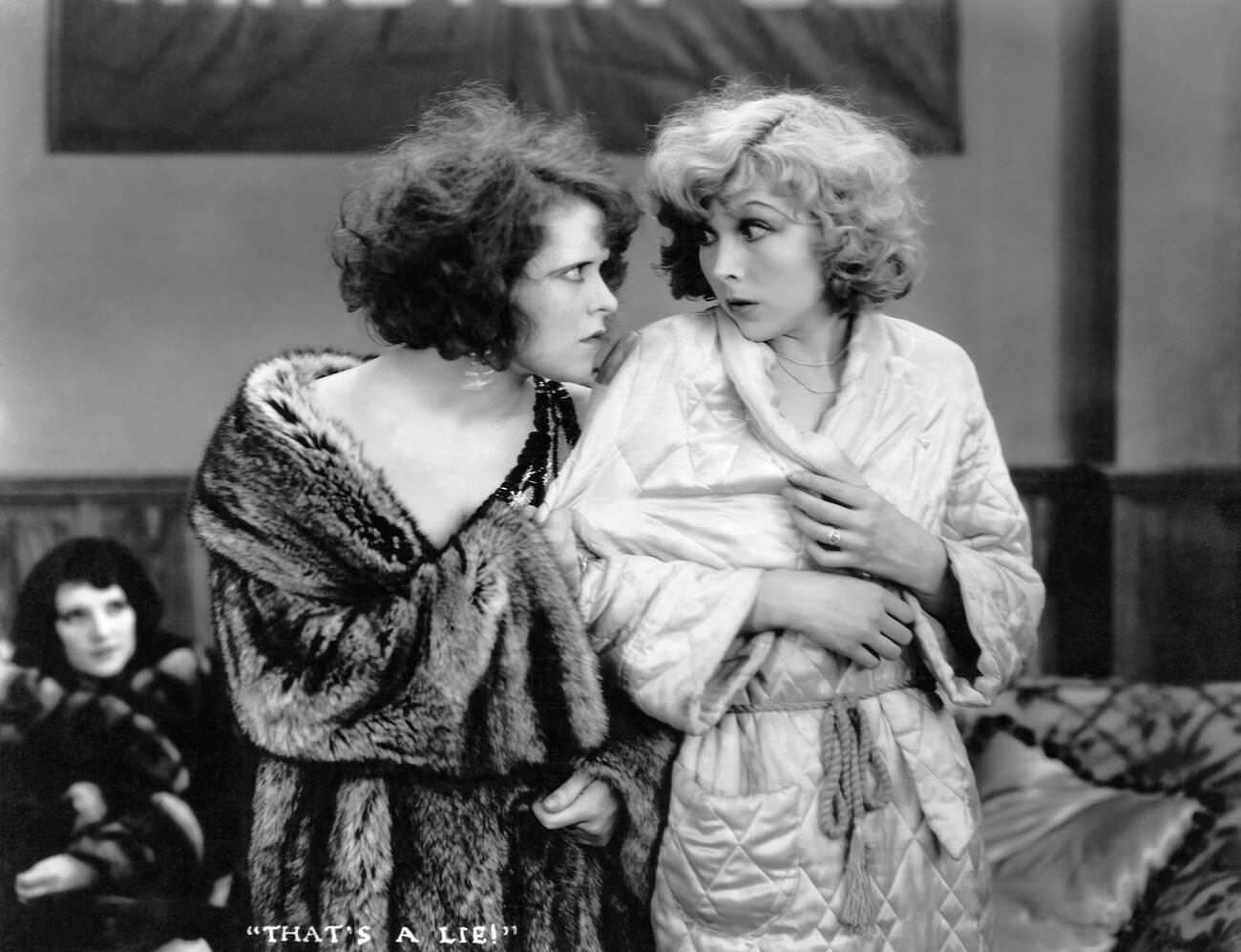
It marked a pivotal moment for Clara Bow as it was her first talkie, transitioning from silent films into the era of sound. In this pre-Code film, Bow portrays Stella Ames, a vivacious college girl who navigates the raucous world of a women's college while being both the life of every party and the object of many men's affections. Her free-spirited and unapologetically rebellious character encapsulates the flapper lifestyle, right down to the jazz-filled, carefree parties that defined the Roaring Twenties.
Stella is a character of complexity and resilience, leading a lifestyle that defies societal expectations and norms. Bow's portrayal is particularly noteworthy as it highlights her capacity to bring depth to a character that could have easily been written off as a mere party girl. Her acting is full of the same vitality that made her a silent film star, but also adapts to the demands of the sound era, showcasing her distinctive voice and the vivacious energy she brought to her characters.
#5 Red Hair (1928)
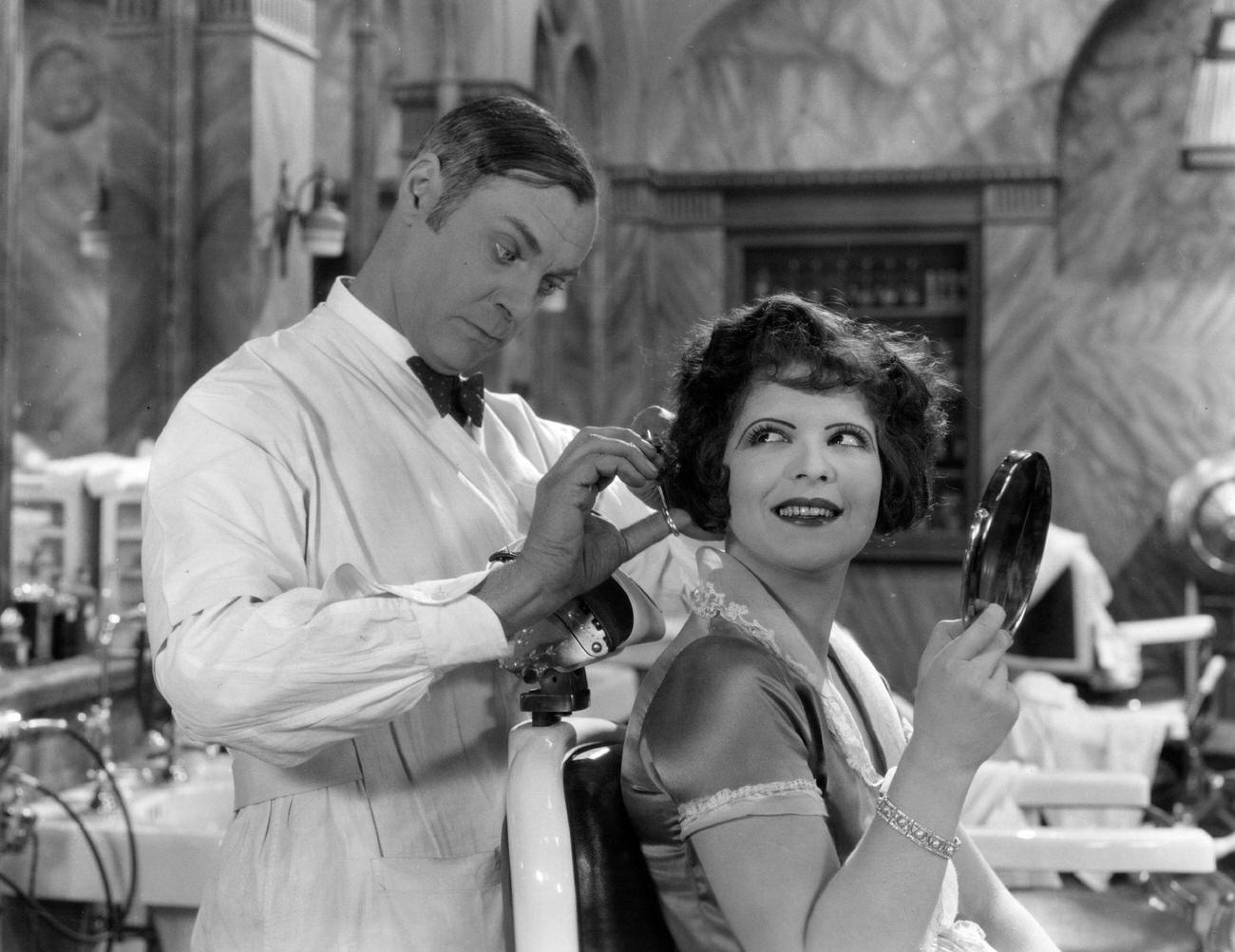
It is a silent comedy that features Clara Bow in one of her signature roles, brandishing her infamous red locks which the film is named after. In this lost film, with only a few fragments and still photographs remaining, Bow plays Bubbles McCoy, an impulsive and fiery-haired manicurist with a zest for life and a series of romantic adventures.
Although the complete narrative details are lost to time, surviving accounts and materials suggest that Bow's character Bubbles is a quintessential flapper, embodying the independence and carefree attitude that defined the era's progressive young women. Clara Bow's vibrant persona and screen presence brought Bubbles McCoy to life, her red hair becoming a symbol of her fiery and unconventional nature.
#6 Call Her Savage (1932)
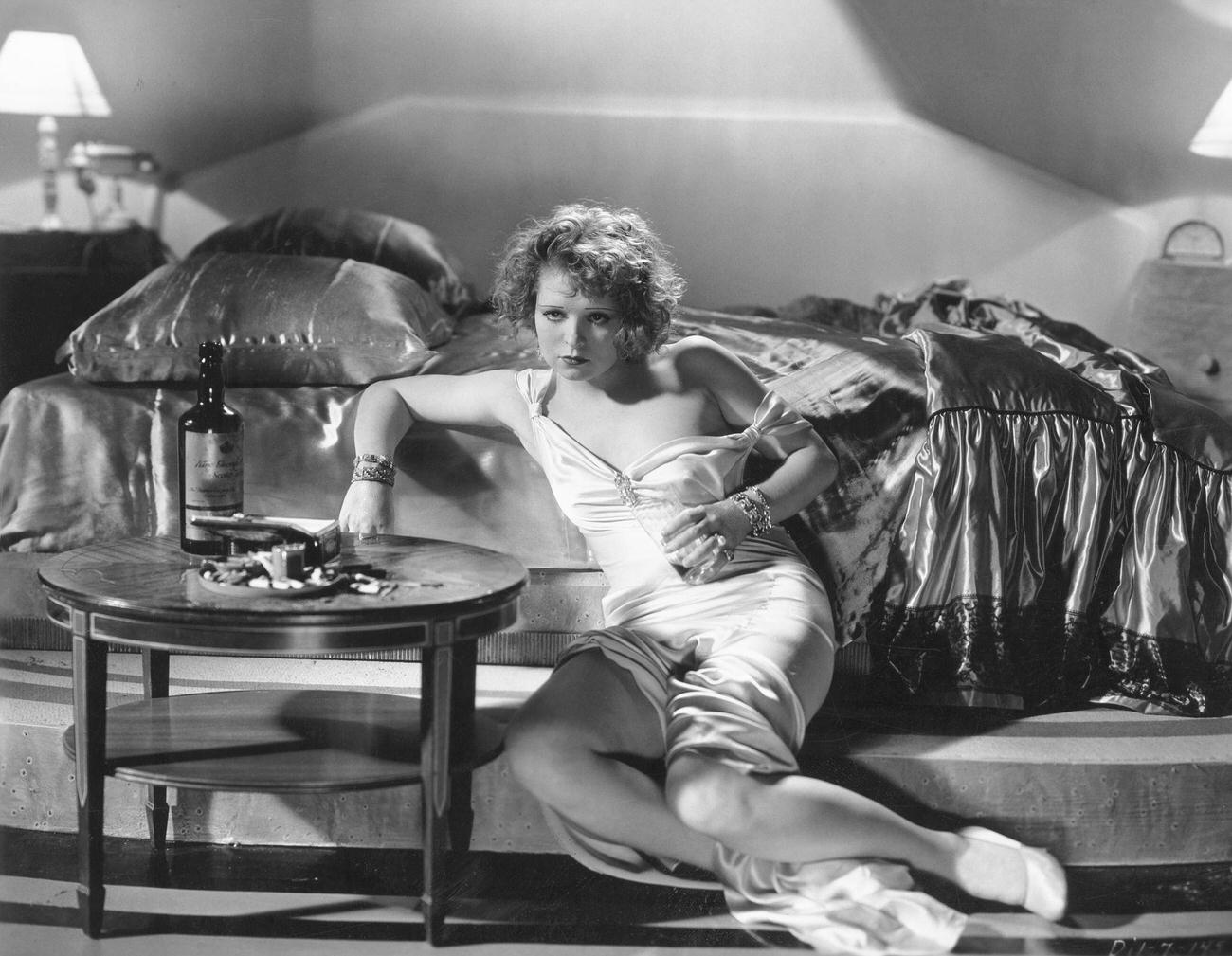
It is a pre-Code drama film that allowed Clara Bow to stretch her acting repertoire in a bold and unconventional role. Bow stars as Nasa Springer, a fiery Texas heiress with a tumultuous spirit that mirrors the wild landscape she inhabits. The film is a whirlwind of drama and emotion, following Nasa's tumultuous life from her rebellious youth to her troubled adulthood.
Nasa's character is a complex tapestry of defiance, passion, and vulnerability. Bow's portrayal captures the essence of a woman who is both a product of her environment and a defiant force against it. Her performance is raw and unbridled, mirroring the chaotic life of her character who deals with issues of identity, love, and societal expectations.
#7 Dancing Mothers (1926)
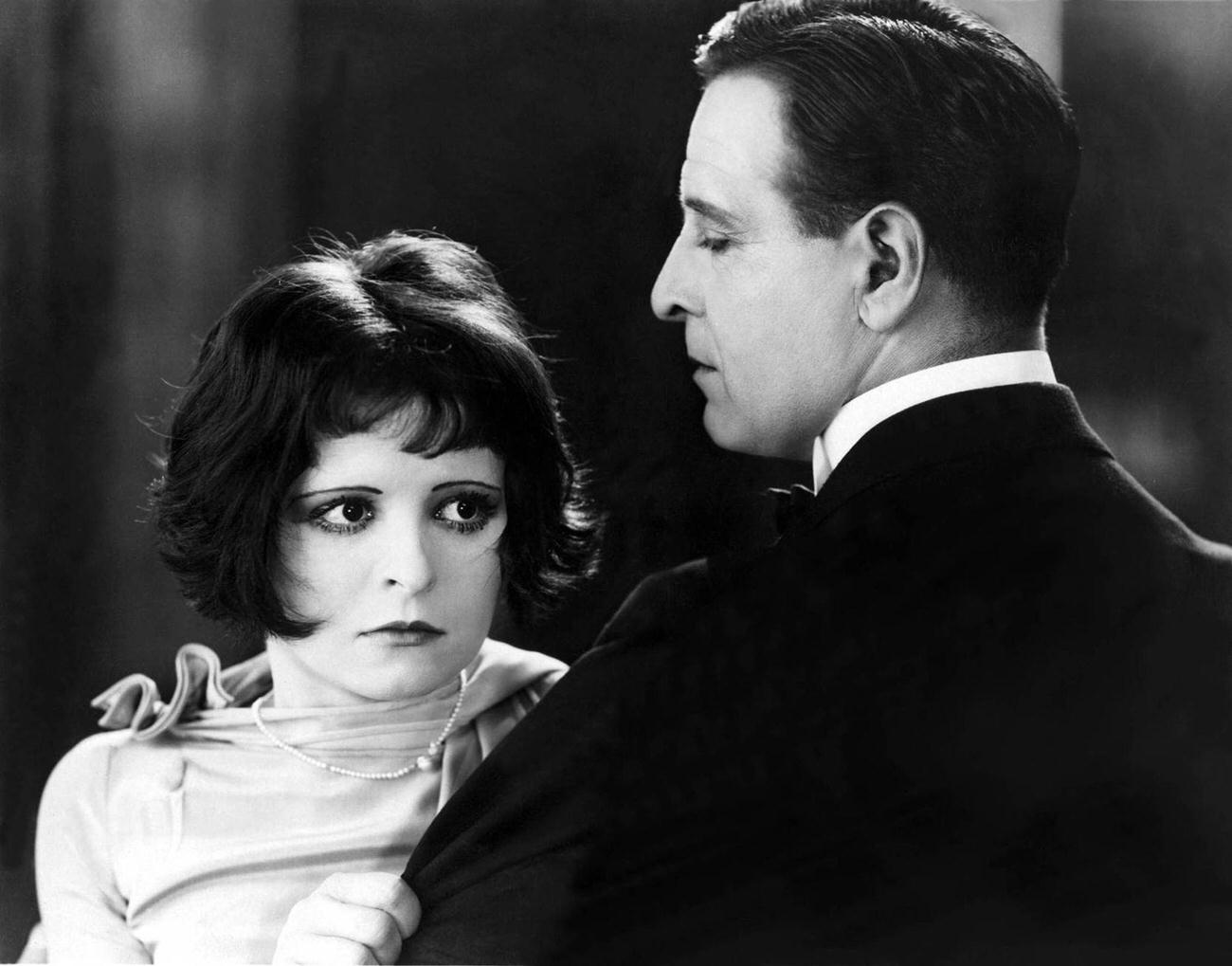
It is a silent drama that explores the roaring twenties' shifting social mores through the lens of family dynamics and the era's generational divide. Clara Bow takes on the role of Kittens Westcourt, a young and vivacious woman who embodies the flapper's spirit — adventurous, spirited, and emblematic of the new modern woman.
The story revolves around the relationship between Kittens and her mother, Ethel Westcourt, who, after years of being neglected by her husband, discovers the world of jazz and nightlife. As Ethel begins to embrace the lifestyle that her daughter Kittens had been enjoying, a compelling narrative unfolds about love, jealousy, and the pursuit of happiness.
Clara Bow's acting brings to life the complexities of Kittens' character. She adeptly portrays a range of emotions as her character navigates the excitement of the Jazz Age's social scene and the ensuing familial tensions. Her performance highlights Kittens' rebellious nature, but also her depth and her capacity for change as the story progresses.
#8 The Plastic Age (1925)
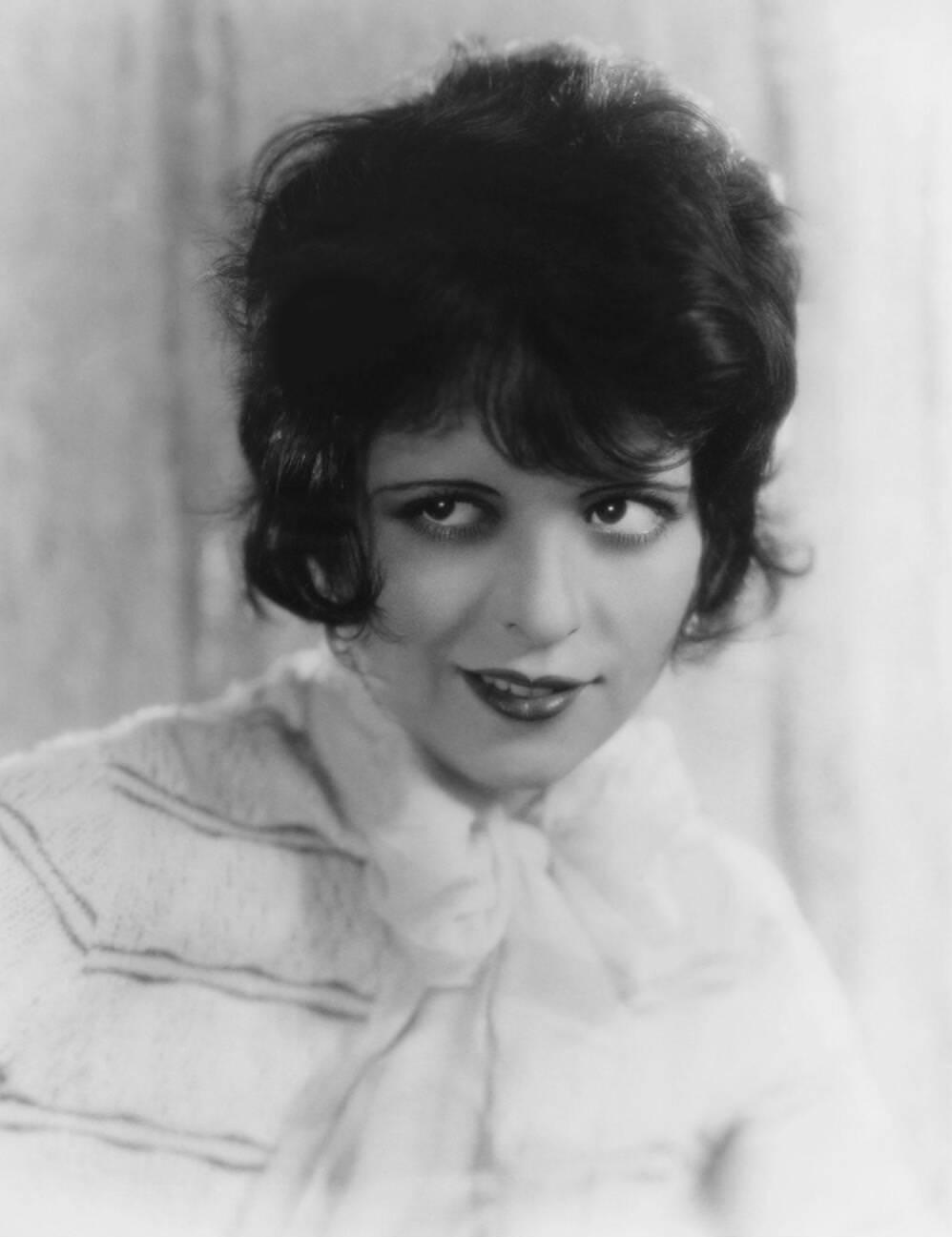
It is a silent film that presents a compelling narrative set against the backdrop of the Roaring Twenties, addressing the themes of youth culture and the moral trials facing the younger generation. Clara Bow stars as Cynthia Day, a lively and alluring college girl who becomes the center of attraction at the co-educational Prescott College.
Cynthia Day is depicted as the quintessential flapper, embodying the freedom, vivacity, and sensuality that characterized the progressive women of the 1920s. Bow's portrayal captures the spirit of the age, as Cynthia navigates collegiate life filled with athletics, romances, and the obligatory college "petting parties," reflecting the changing attitudes toward relationships and social norms.
#9 Parisian Love (1925)
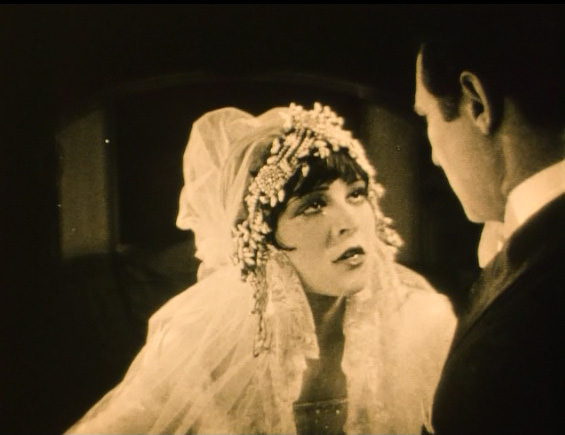
It casts Clara Bow in the atmospheric underworld of Paris, taking on the role of Marie, a street-smart and cunning pickpocket. This silent film offers a narrative rich in drama and romance, as Marie navigates the gritty byways of the city's criminal milieu.
Marie's life takes a dramatic turn when her partner in crime, Armand, is injured, prompting a vengeful transformation from cunning thief to a femme fatale intent on infiltrating and upending the bourgeois society that she blames for her lover's downfall. Clara Bow's portrayal of Marie is electrifying—she captures the raw emotion of a scorned lover and the seductive power of a woman driven by retribution.
#10 Down to the Sea in Ships (1922)
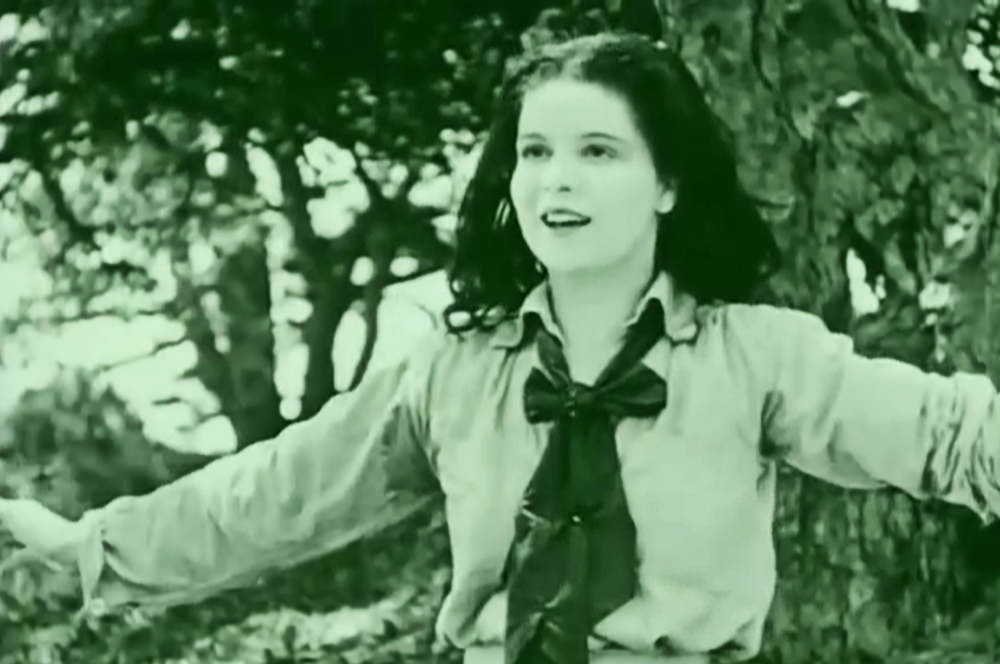
It is an adventure-romance silent film set within the perilous and fascinating world of whaling. Clara Bow appears in the film in one of her earliest roles, portraying a tomboyish character named Dot Morgan. Her part, although not the leading role, left an indelible impression due to her spirited performance.
The film's narrative centers around a whaling community, with the story focusing on a Quaker family and their whaling vessel, the 'Sea Hawk'. The patriarch of the family, Captain Charles W. Morgan, is determined to catch a legendary whale, and the plot weaves together the high-stakes adventure on the high seas with a romantic subplot involving his granddaughter, Patience Morgan.
Clara Bow's character, Dot, is full of the youthful energy and charm that would soon make her a cinematic icon. Though the role of Dot Morgan required Bow to play a more subdued and less glamorous character than her later "It" girl persona, she infused the character with her trademark vivacity and magnetism.
#11 The Saturday Night Kid (1929)
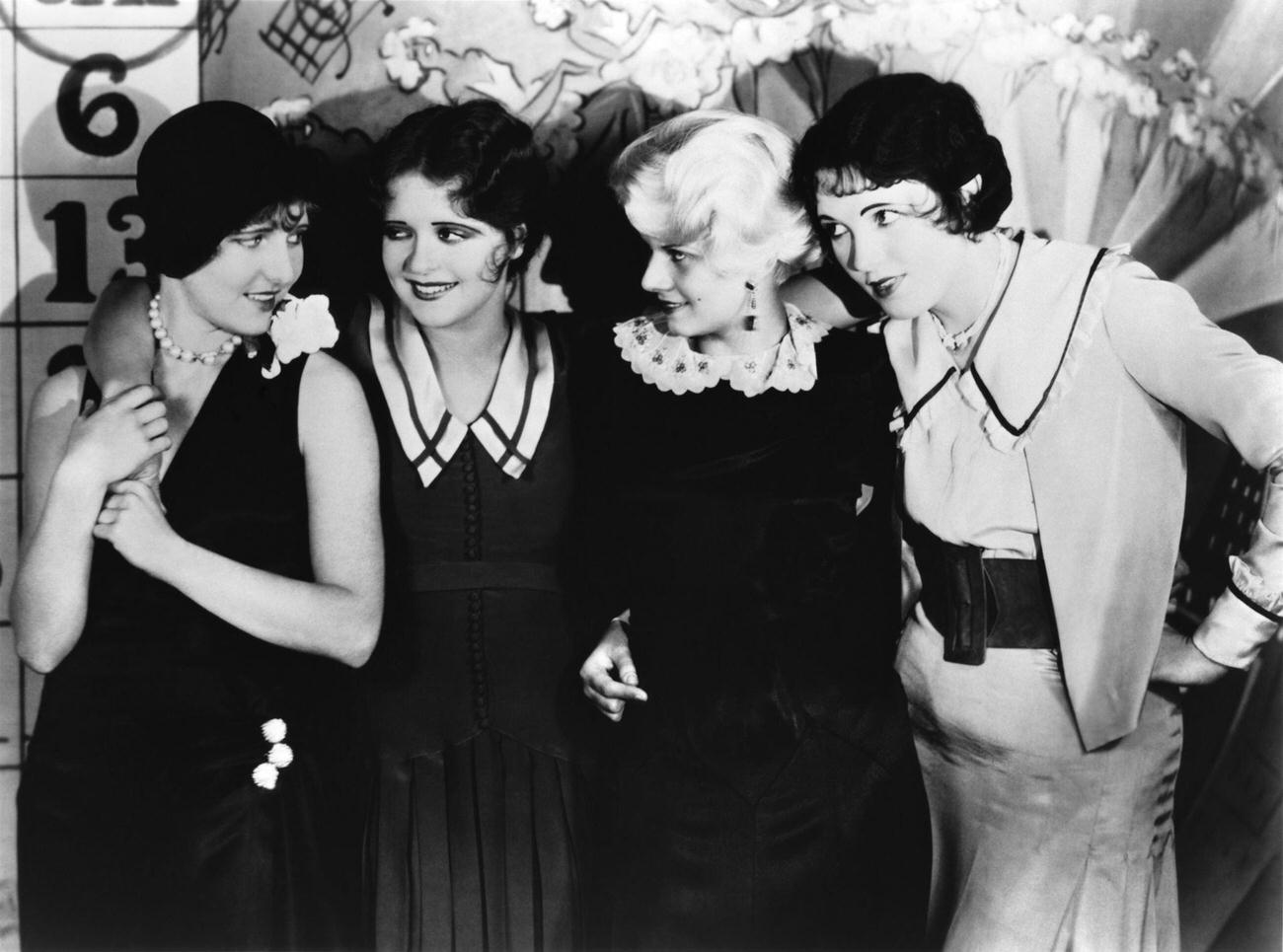
"The Saturday Night Kid" (1929) presented Clara Bow in a sound film that underscored her talent as an actress during a time when silent cinema was giving way to the talkies. In this film, Bow portrays Mayme, a spirited and sassy salesgirl with an endearing streetwise edge, working alongside her sister Janie at a department store.
The film delves into the everyday struggles and romantic entanglements of working-class individuals, with Bow's character caught in a love triangle involving her sister and her fiancé, Bill. The dynamic between the sisters is a central theme, highlighting both the tension and the deep familial bonds that tie them.
Bow's performance as Mayme is both charismatic and nuanced, reflecting her ability to adapt her talents to the new demands of sound films. Her vivacious personality shines through in her line delivery and her interactions with the other characters, bringing a sense of realism and relatability to the story.
#12 Children of Divorce (1927)
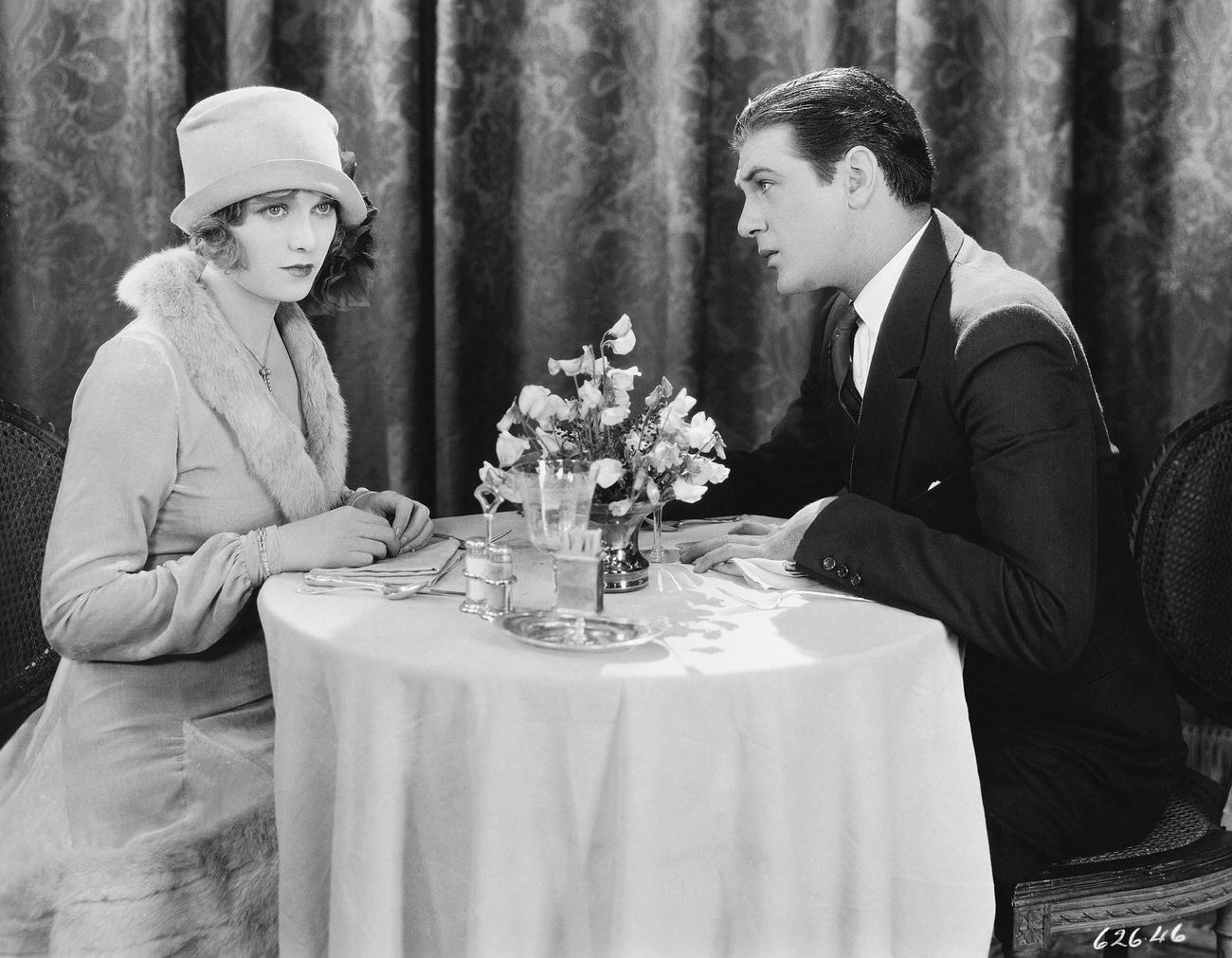
It is a silent film that addresses the complicated and often tragic implications of marital dissolution on the young. Clara Bow plays Kitty Flanders, a sensitive and vulnerable young woman who has grown up amidst the luxury and moral laxity of a European finishing school, only to find her life upended by the emotional fallout of her parents' broken marriage.
In the film, Kitty's story intertwines with those of her friends, also the children of affluent and negligent parents. As they enter adulthood, their personal relationships are deeply scarred by the instability and lack of guidance they experienced in childhood. Bow's Kitty is a poignant embodiment of the consequences of such neglect, as she yearns for genuine love and a stable life, contrasting with her own upbringing.
#13 Hula (1927)
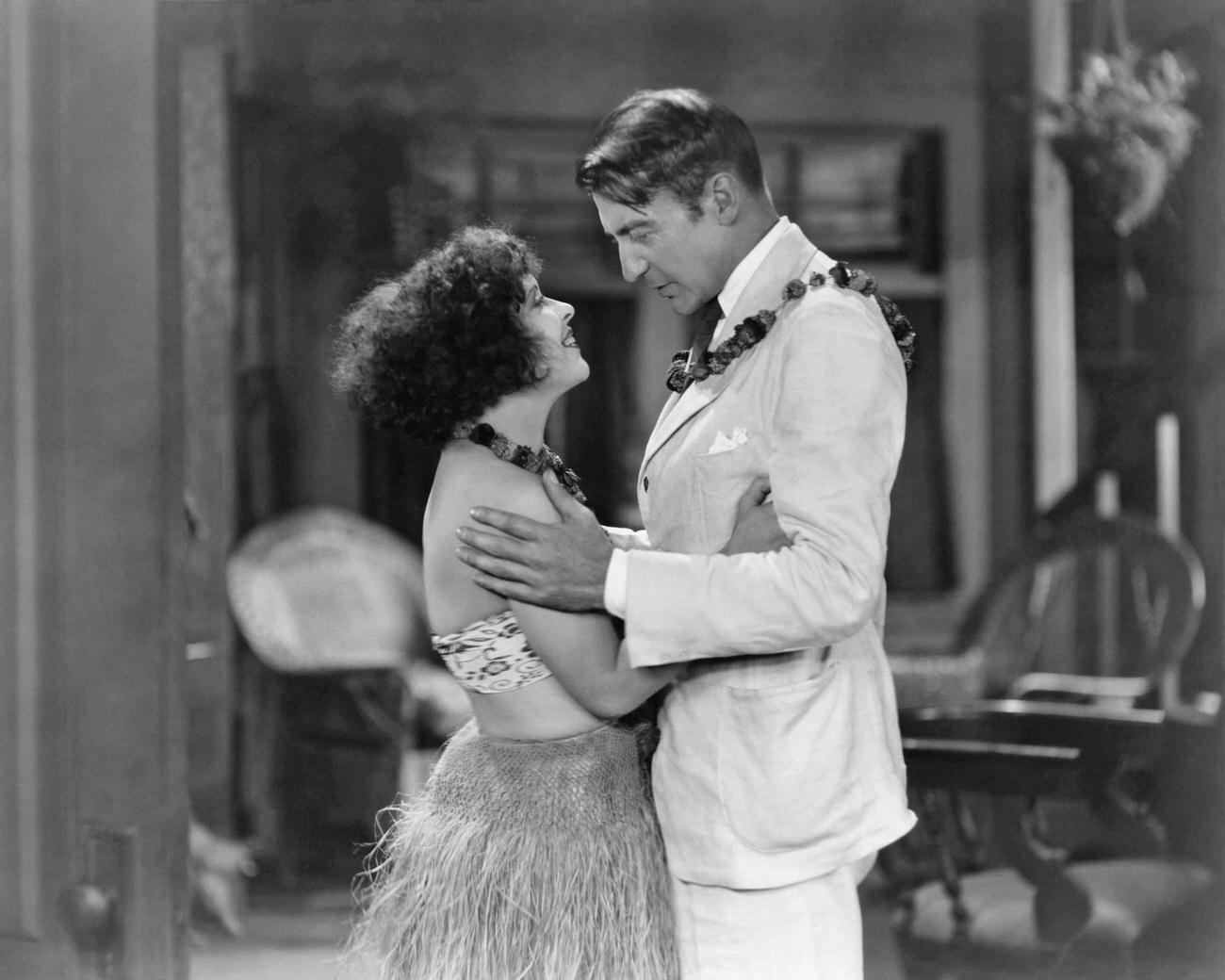
It is a silent film that offers a tantalizing romantic comedy set against the lush backdrop of Hawaii. Clara Bow stars as Hula Calhoun, a free-spirited and uninhibited young woman who embodies the essence of the flapper era, living life on her own terms amidst the natural beauty of the Hawaiian landscape.
The plot revolves around Hula's pursuit of a handsome Englishman, Anthony Haldane, who is unfortunately already betrothed due to family obligations. Undeterred, Hula employs her charm, wit, and seductive prowess to win his heart, leading to a series of playful and provocative encounters that defined Bow's on-screen persona.
#14 Kid Boots (1926)
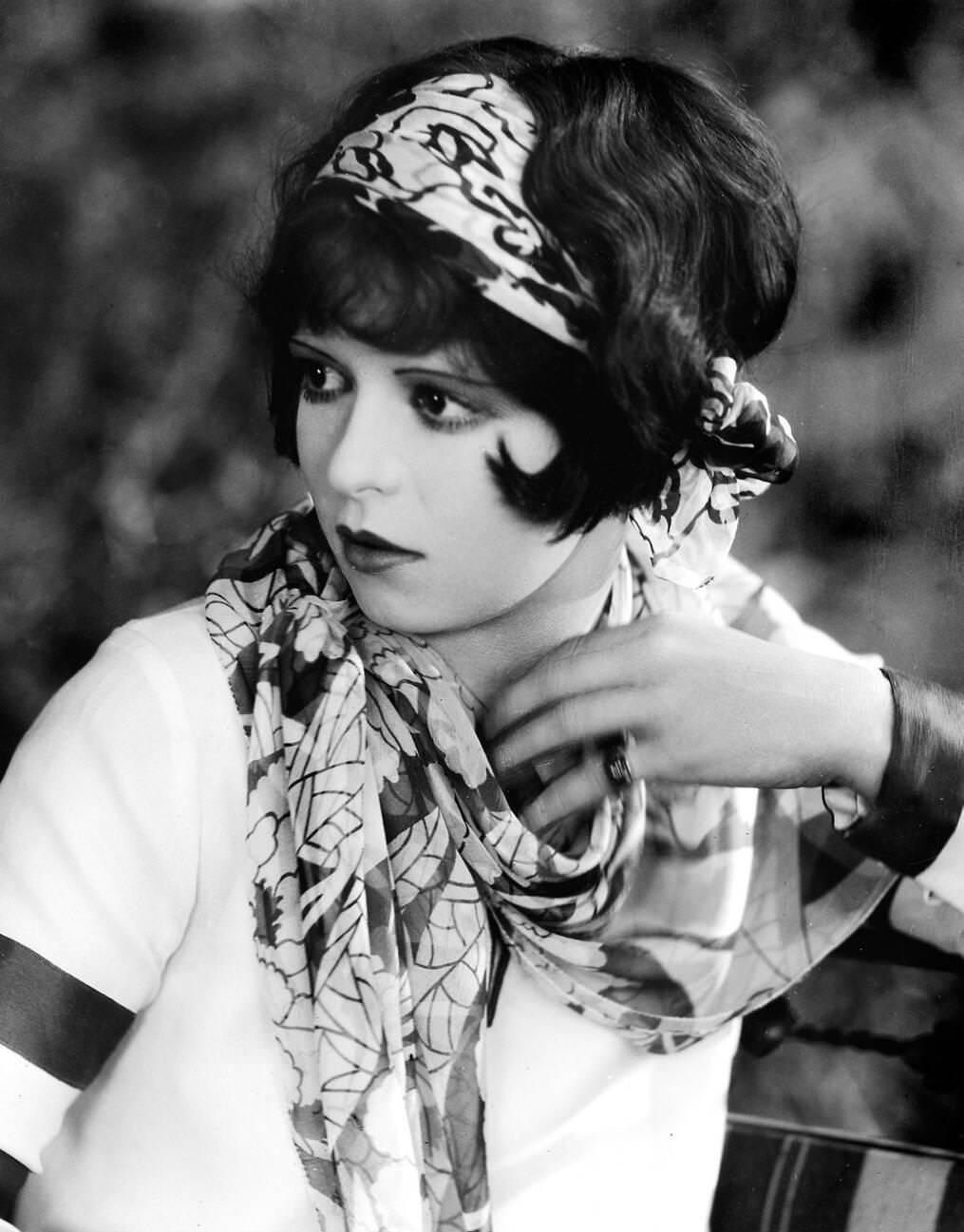
It is a silent romantic comedy that showcases Clara Bow's comedic talents alongside the legendary comic actor Eddie Cantor. In this film, Bow plays the role of Clara McCoy, a charming and vivacious young woman who becomes the object of affection for Cantor's character, a timid tailor's assistant named 'Kid' Boots.
The story follows 'Kid' Boots as he tries to help his friend, Tom Sterling, escape a loveless marriage and the clutches of a gold-digging soon-to-be ex-wife. 'Kid' Boots finds himself in a series of misadventures and comical situations, especially when he meets and falls for the alluring Clara McCoy while working at a country club.
#15 Ladies of the Mob (1928)
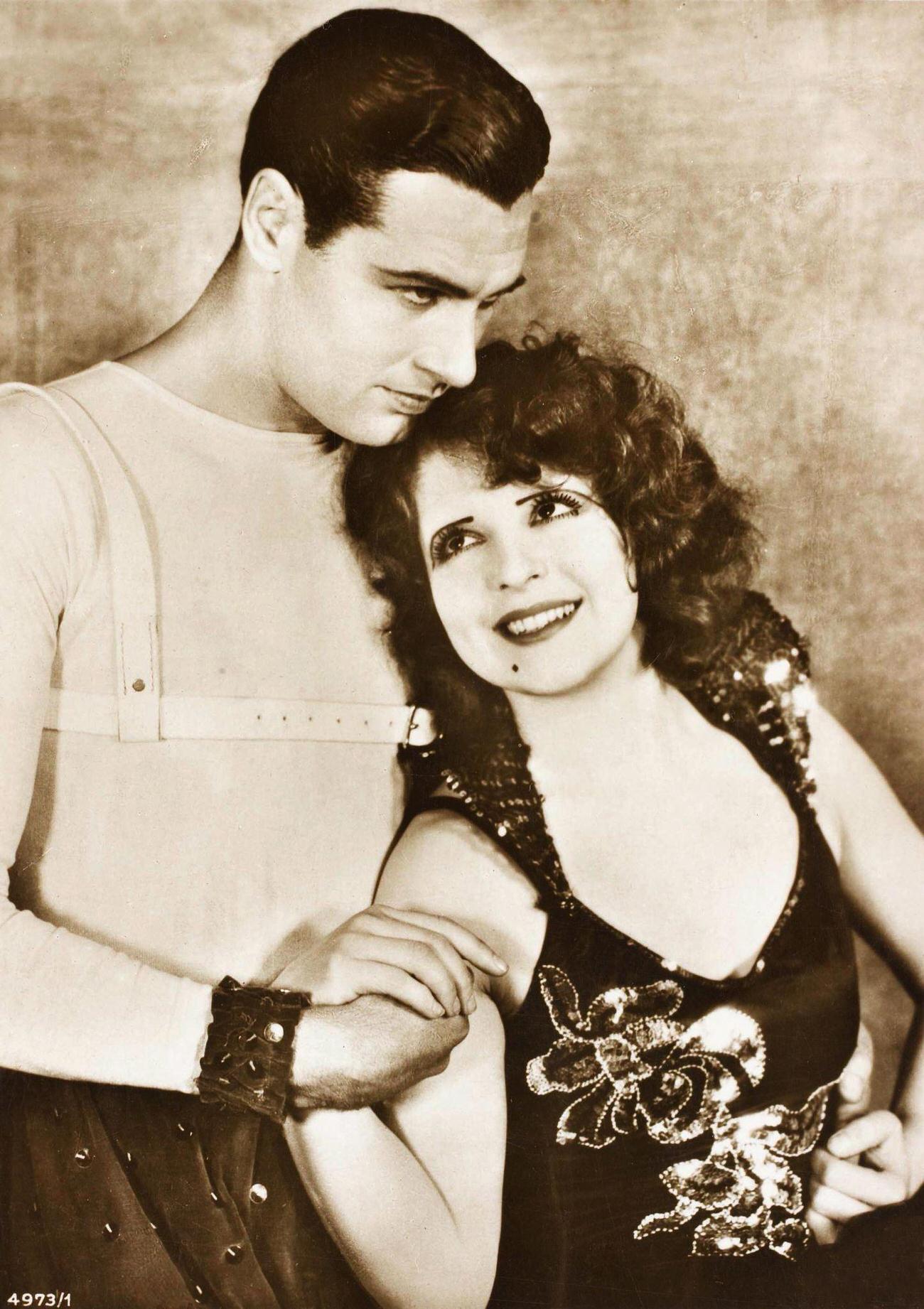
It is a silent film now considered lost, which captured Clara Bow in the role of Yvonne, a woman deeply entrenched in a life of crime. Directed by the visionary William A. Wellman, this gritty drama takes us into the world of a gangster's daughter who is desperate to find a way out of the criminal underworld that has always been her home.
Yvonne, portrayed by Bow, is a complex character, torn between her loyalty to her family and her desire for a different life. She falls in love with a reformed criminal, hoping to escape the shadows of her upbringing, but her father's life of crime continually pulls her back in, leading to a dramatic struggle for redemption and freedom.



